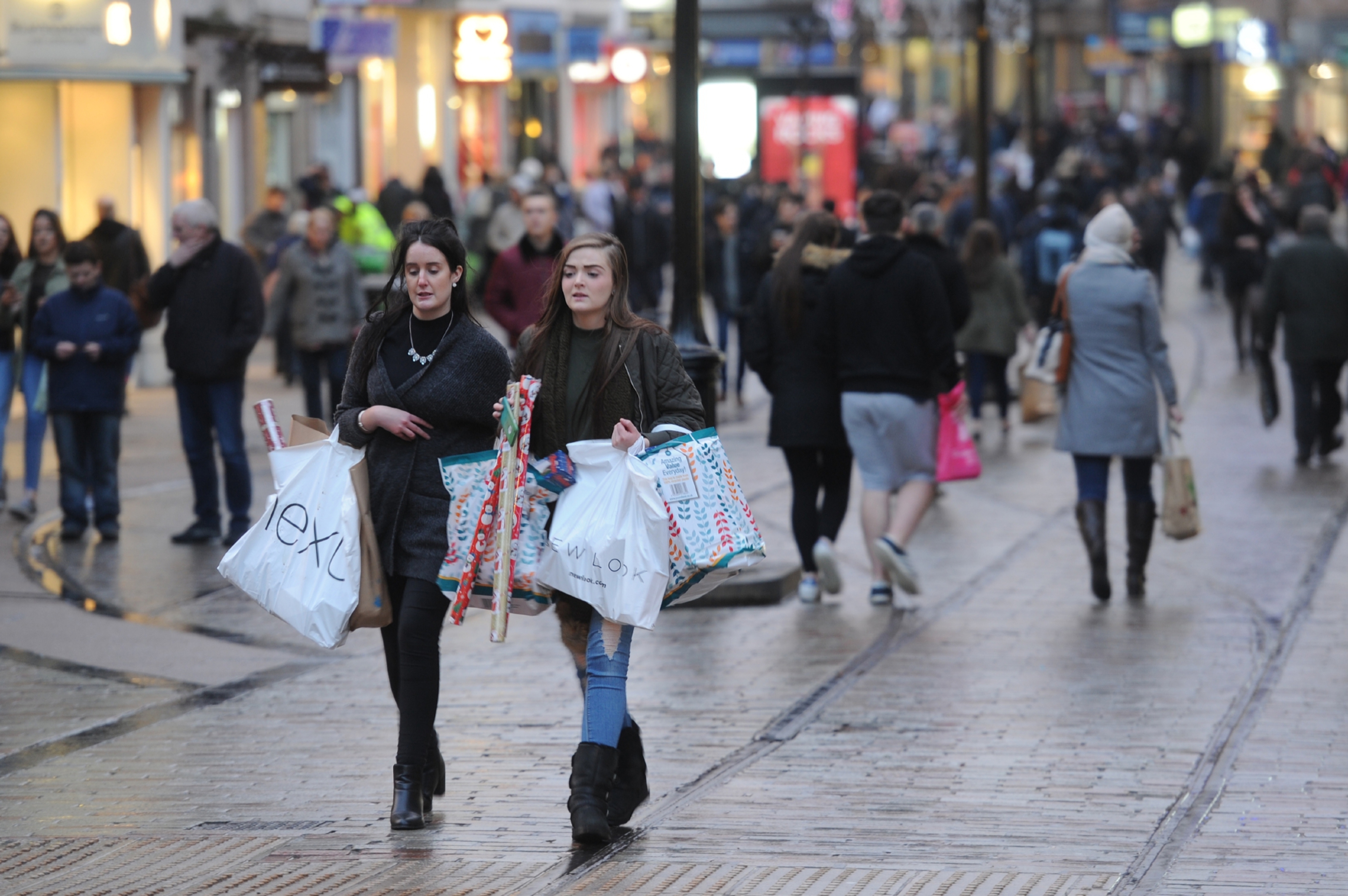The director of the Scottish Retail Consortium has warned retailers face a several headwinds which could impact on consumer spending in the coming months.
Retail sales in Scotland bounced back last month, helped by winter sales and Valentine’s Day spending and food inflation easing.
However, Scottish Retail Consortium head David Lonsdale poured cold water over the positive figures, cautioning of upcoming challenges to retailers.
He said: “Scottish retail sales turned in a creditable performance last month, prior to the widespread snow disruption, with a resumption in growth above that witnessed over the past few months.
“While inflationary pressures on food prices appear to have crested and are beginning to ease, it is too soon to say whether this is set to correspond with greater spending on more discretionary retail items.
“After all Scotland’s shoppers face a number of headwinds over the coming months which may prove hard to shrug off and which could well crimp consumer spending, notably higher council and income taxes and with overall inflation continuing to outstrip the growth in wages.”
According to the SRC-KPMG Scottish retail sales monitor published today, Scottish sales increased by 0.4% on a like-for-like basis last monthcompared to February 2017, when they decreased by 0.9%.
For the three months prior to February sales growth stagnated.
Total sales in Scotland increased by 0.7% compared with the same month last year.
Food sales in February increased 3.5% compared to last year while non-food sales declined by 1.6% year-on-year.
Craig Cavin, KPMG’s head of retail in Scotland, said retailers would have to think of new ways to encourage spending over the coming months.
“It’s an opportunity for retailers to really change the game — we’re already seeing some leading the way — and that’s an exciting prospect for the consumer,” he said.
Meanwhile the Scottish Retail Consortium is encouraging retailers to sign up to a sustainability, development and equality pledge.
The Better Retail Better World action plan includes a series of targets for the retail industry to achieve by 2020.
These include no worker paying for a job, publically disclosing how retailers are supporting people from underrepresented demographics and a pledge to reduce waste, greenhouse gas emissions and deforestation.
Among the 25 leading UK retails who have signed the pledge are Perthshire retailer The House of Bruar, as well as major chains such as Asda, Alsi, Boots, WH Smith and House of Fraser.
Mr Lonsdale added: “The key message as we move forward with these new and even more ambitious targets is that the retail sector is rising to the challenge of climate change and ethical labour practices and building on previous successes, working in partnership with government and others.”

